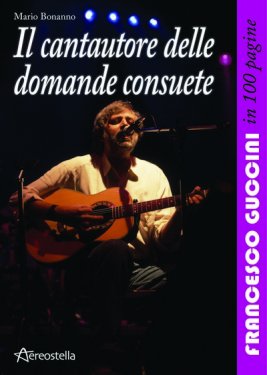Il cantautore delle domande consuete. Francesco Guccini in 100 pagine
Original price was: €12,00.€10,20Current price is: €10,20.
Description
Saying Francesco Guccini is like saying Giuseppe Garibaldi for the Unity of Italy: an archetype, a “Father of the Fatherland”, a place of the spirit, a philosopher with the guitar, an inalienable reference point for the Italian songwriter and the song tout court.
His records are halfway between the memory of a nation and the generational madeleines. Who can say that you understand music and dismiss albums like Radici, Radici, Amerigo, Via Paolo Fabbri 43, Signora Bovary? o songs fetish, river, enfie, verbose, that have marked the soundtrack of an era, or rather different eras: Aushwitz, Dio è morto, L’avvelenata, Eskimo, Canzone di notte, Vedi cara, La locomotiva, Bologna, Autogrill. You say Francesco Guccini and you say magisterium of the art of composing and singing, there is little to joke and even to add.
Forty years played of squares practiced, suffered, celebrated (including the Genoese Piazza Alimonda), revolutions missed by a breath, famous phrases, danced and poisoned, drunk on drinks, “fuck around”, friars, America, Donald Duck, Roland Barthes, vile stories as you want, and also several rooms of daily life between the Via Emilia and the West. Forty years of wine and deaf philosophers (not always and not necessarily in this order) as key of access and exploration to “this thing you can call life”.
Francesco Guccini is like saying more or less a UNESCO World Heritage Site, a “maître a penser” in spite of himself, committed to clear letters and song. This book explores and covers the entire discography, from Folk Beat N.1 to the present day of L’ultima Thule, in parallel to the events of the period in which it was published.An attempt of systematization with several precedents and therefore unassuming from the last word, accepting rather the face to face with the multiple doubts, the postponements, the ugge, the anger, the erre moscia, the boredom, the melancholy, underlying a chansonnier among the most stratified and speculative that the story of Italian music remembers.
Author: Mario Bonanno




